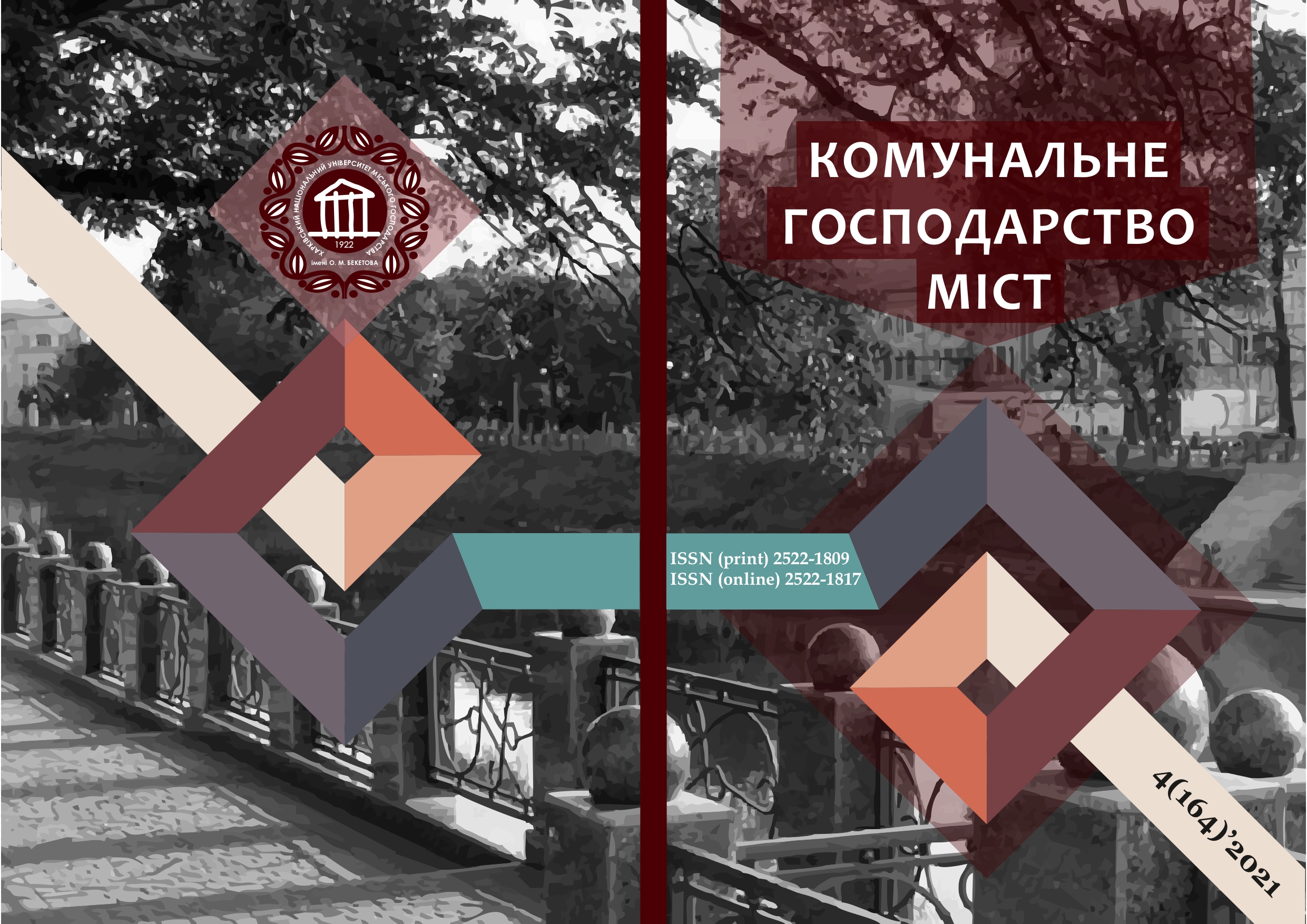DIRECTIONS OF TECHNOLOGICAL AND DEVELOPMENT REGULATORY AND LEGAL INSTRUMENTS OF THE ORGANIZATION ENVIRONMENTAL ACTIVITY IN UKRAINE
Array
Keywords:
innovation and technological progress, technologies and tools of environmental protection, eco-entrepreneurship, regulatory framework for environmental protection.Abstract
One of the main tasks of the environmental industry is innovation, which is now the key to technological progress. Technological and organizational-economic tools, especially in terms of nature management, environmental assessment and entrepreneurship, are aimed primarily at implementing effective, efficient measures aimed at overcoming the deep environmental crisis and ensuring conditions for sustainable development of the state. Technological and organizational-economic mechanisms of greening is a set of organizational forms and economic levers, the interaction of which allows to ensure the implementation of a recurring process aimed at improving the economic and environmental efficiency of social production and stimulating environmental measures. Green (eco-) entrepreneurship is an alternative vision of growth and development. It is necessary to rethink the theoretical approaches and clearly clarify the essence of the organizational and economic mechanism of sustainability of eco-enterprises for its effective formation and implementation of further research in this area. These breakthroughs are expected to lead to significant transformational changes in the functioning of society. These achievements promise significant social and economic benefits, increased efficiency and increased productivity in many areas. Innovations, including technological and organizational-economic tools focused on the collection, processing and analysis of vast arrays of information science data, will have implications for countless areas of research and development. An innovative methodological approach to the definition and justification of priority management technological and organizational and economic decisions for MAI, allows to involve experts in environmental, urban, social, economic direction of municipal authorities of a particular settlement, industrial, residential and military facilities, to justify management decisions environmental safety of settlements, etc. The advantages of the methodological approach include - the ability to link to a single algorithm to justify the solution of data that differ in content (ecological, biological in higher aquatic plants, urban, social and economic) and in the form of presentation (data of direct measurements, statistical and forecast estimates) to develop a single proposal for the application of modern management in practice.
References
2. Klaus Schwab is Founder and Executive Chairman of the World Economic Forum, “The Fourth Industrial Revolution: What It Means, How to Respond. (2016). URL: https://www.weforum.org/agenda/2016/01/the-fourth-industrial-revolution-what-it-means-and-how-to-respond/
3. World Economic Forum, “Agile Governance: Reimagining Policy Making in the Fourth Industrial Revolution” (2018). URL: http://www3.weforum.org/docs/WEF_Agile_Governance_Reimagining_Policy-making_4IR_report.pdf
4. Camino Kavanagh, ‘New Tech, New Threats, and New Governance Challenges: An Opportunity to Craft’. (2019). Carnegie Endowment for International Peace. URL: https://carnegieendowment.org/files/WP_Camino_Kavanagh___New_Tech_New_Threats.pdf
5. Sustainable Development – What Is It? Definition, History, Evolution, Importance and Examples. (2020). URL: https://youmatter.world/en/definition/definitions-sustainable-developmentsustainability/#:~:text=Sustainable%20development%20is%20the%20idea,the%20Brundtland%20Report%20in%201987/
6. Constitution of Ukraine. (1996). Law of Ukraine from 28.06.1996 No. 254/к/96-VR. URL: http://zakon2.rada.gov.ua/laws/show/254%D0%BA/96-%D0%B2%D1%80 [in Ukrainian]
7. Teliura, N.O. (2018). Development of the methodological approach to the selection of technologies for environmentallysafe water drainage in populated areas. Eastern-European Journal of Enterprise Technologies, 6(10 (96), 55–63. DOI: https://doi.org/10.15587/1729-4061.2018.148689
8. Dmitrieva, O.O., Bratkevich, V.V., Teliura, N.O. (2016). Model of conformity regulatory framework of Ukraine and EU directiv biodiversity. Municipal economy of cities, 132, 80–87. [in Russian]
9. Saati, T.L. (1993). Decision Making: Hierarchy Analysis Method. Radio and communication, Moscow. [in Russian]
10. Teliura, N.О. (2021). Ensuring of an ecological safety of eutrophic water bodies via the implementation of priority water disposal technologies in settlements. Wissenschaft für den modernen Menschen: innovative technik und technologie, informatik sicherheitssysteme, verkehrsentwicklung, architektur: monografische reihe «Europäische Wissenschaft». Karlsruhe, Germany: ScientificWorld-NetAkhatAV, Buch 4, Teil 4, P. 10–19.
11. Teliura, N.O. (2019). Improving the environmental safety of
eutrophied water bodies through the introduction of priority drainage technologies in settlements. PhD thesis. Kharkiv. [in Ukrainian]
12. Herasymchuk, Z.V. (2011). Stimulation of sustainable development of the region: theory, methodology, practice. RVV LNTU, Lutsk. [in Ukrainian]
13. Sustainable Development Goals 2016–2030. URL: http://www.un.org.ua/ua/tsili-rozvytkutysiacholittia/tsili-staloho-rozvytku. 14 [in Ukrainian]
14. Kovalenko, A.A. (2017). Urbanization and strategic planning for the sustainable development of cities. Economic Bulletin of the National Mining University, 4, 67–77. URL: http://nbuv.gov.ua/UJRN/evngu_2017_4_10 [in Ukrainian]
Downloads
Published
How to Cite
Issue
Section
License
The authors who publish in this collection agree with the following terms:
• The authors reserve the right to authorship of their work and give the magazine the right to first publish this work under the terms of license CC BY-NC-ND 4.0 (with the Designation of Authorship - Non-Commercial - Without Derivatives 4.0 International), which allows others to freely distribute the published work with a mandatory reference to the authors of the original work and the first publication of the work in this magazine.
• Authors have the right to make independent extra-exclusive work agreements in the form in which they were published by this magazine (for example, posting work in an electronic repository of an institution or publishing as part of a monograph), provided that the link to the first publication of the work in this journal is maintained. .
• Journal policy allows and encourages the publication of manuscripts on the Internet (for example, in institutions' repositories or on personal websites), both before the publication of this manuscript and during its editorial work, as it contributes to the emergence of productive scientific discussion and positively affects the efficiency and dynamics of the citation of the published work (see The Effect of Open Access).

